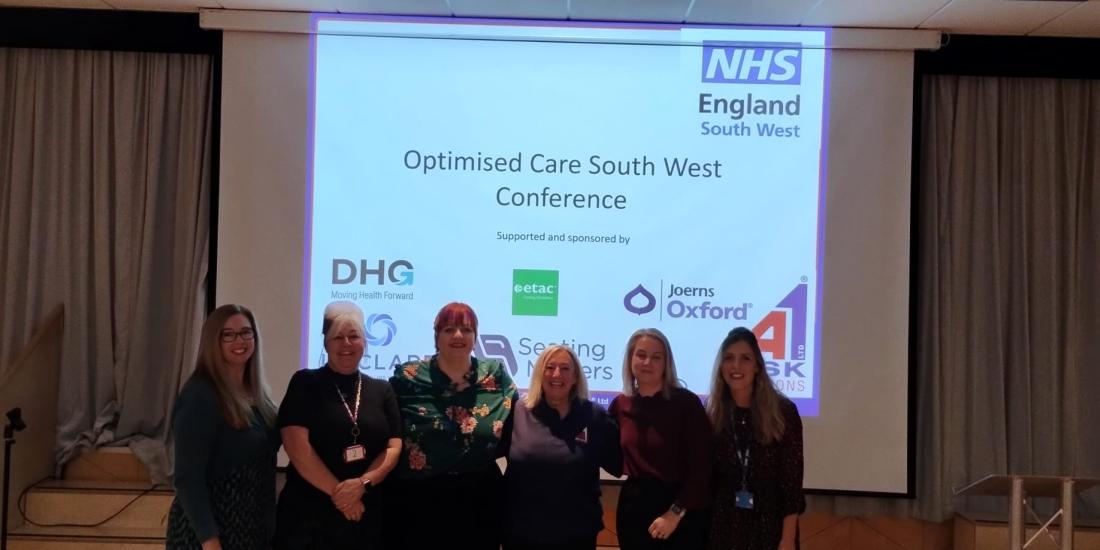
A Summary - Optimal Handed Care Conference 2024
A1 Risk Solutions had the privilege of partnering with the Southwest region to support the Optimal Care Conference held at BAWA in Bristol on the 15 October. This conference was an essential platform to address critical issues around patient care, specifically focusing on optimal handed care, barriers to implementation, case studies, and the wide-reaching benefits of this approach.
We extend our heartfelt thanks to our sponsors: Seating Matters, DHG Healthcare, Joerns, Lisclare, and Etac, whose contributions were vital in making this event a success.
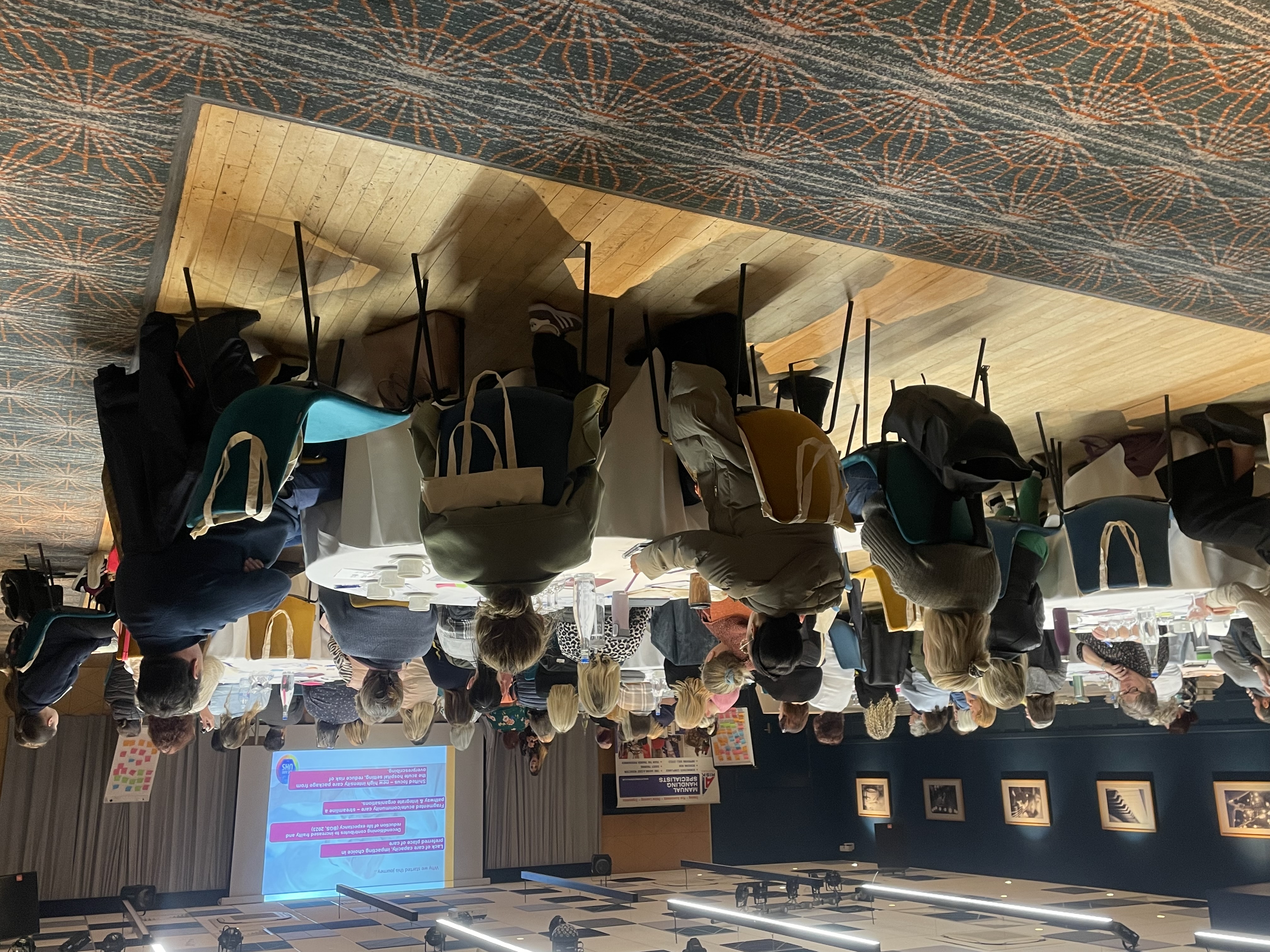
The event commenced with an insightful presentation by Gina Sargeant, SW Regional Chief Allied Health Professional (AHP) lead, emphasising the need for a collective impact and coordination across Integrated Care Systems (ICS). Gina highlighted that amidst rising challenges, healthcare services must innovate, ensuring services aligned with the unique needs of the population. The theme of overcoming barriers—whether within organisations, from external stakeholders, or through self-bias—set the tone for the day.
One of the standout presentations came from Hannah Foxley, Clinical Project Lead OT for Proportionate Care at University Hospital Southampton. Foxley shared the evolution of their optimal handed care journey, which began in 2021. A critical highlight was how the implementation of SHC through pilot programs significantly reduced patient length of stay by 4.7 days per patient. The initiative successfully facilitated early discharges, particularly for patients with complex care needs such as deconditioning during a hospital stay or those on end-of-life pathways.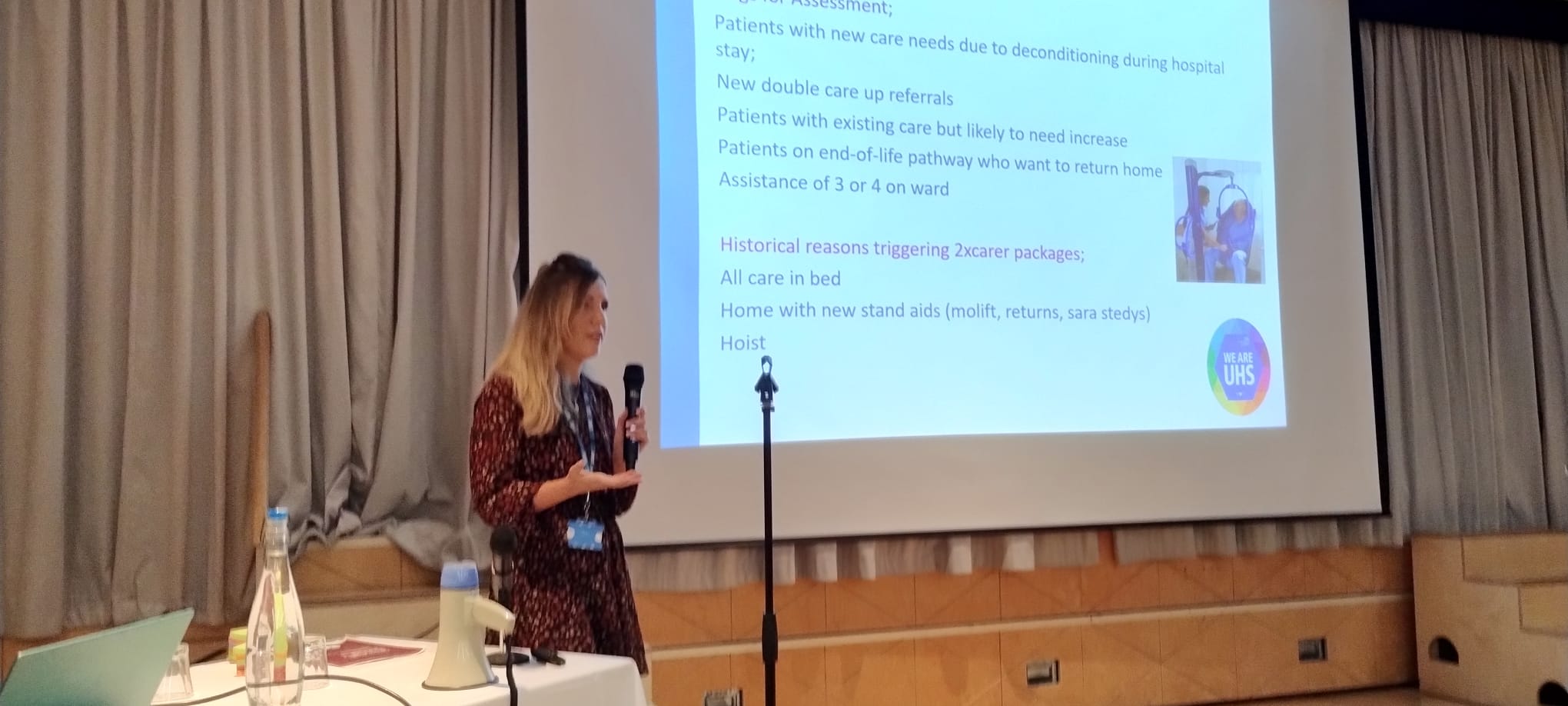
Foxley detailed how they structured SHC by creating a defined discharge pathway, implementing business cases for necessary staffing, and integrating innovative equipment such as hoists and standing aids. The benefits included 82% of patients being discharged with single-care packages and the vast majority retaining this care or requiring no further care post-discharge.
The barriers to rolling out SHC were also extensively discussed. Key challenges included staffing capacity, care agency engagement, and embedding the ethos of proportionate care within the ward environment. However, the success in reducing readmissions, releasing nursing time, and improving patient outcomes underscored the transformative potential of SHC. Foxley shared their strategy for building a sustainable service by upskilling staff, engaging private care agencies, and ensuring the provision of necessary equipment.
Throughout the day, several case studies illustrated how SHC had been successfully adopted. These examples underscored the real-world benefits, such as reducing care hours, improving patient independence, and enhancing the dignity and privacy of those receiving care. Mary Harvey, Principal Occupational Therapist, reflected on the success of collaborative approaches in care, noting that patients who previously required double-up care now often thrive under SHC models. Harvey also explored how SHC fostered greater collaboration between healthcare professionals, enabling a more personalised and efficient care delivery system.
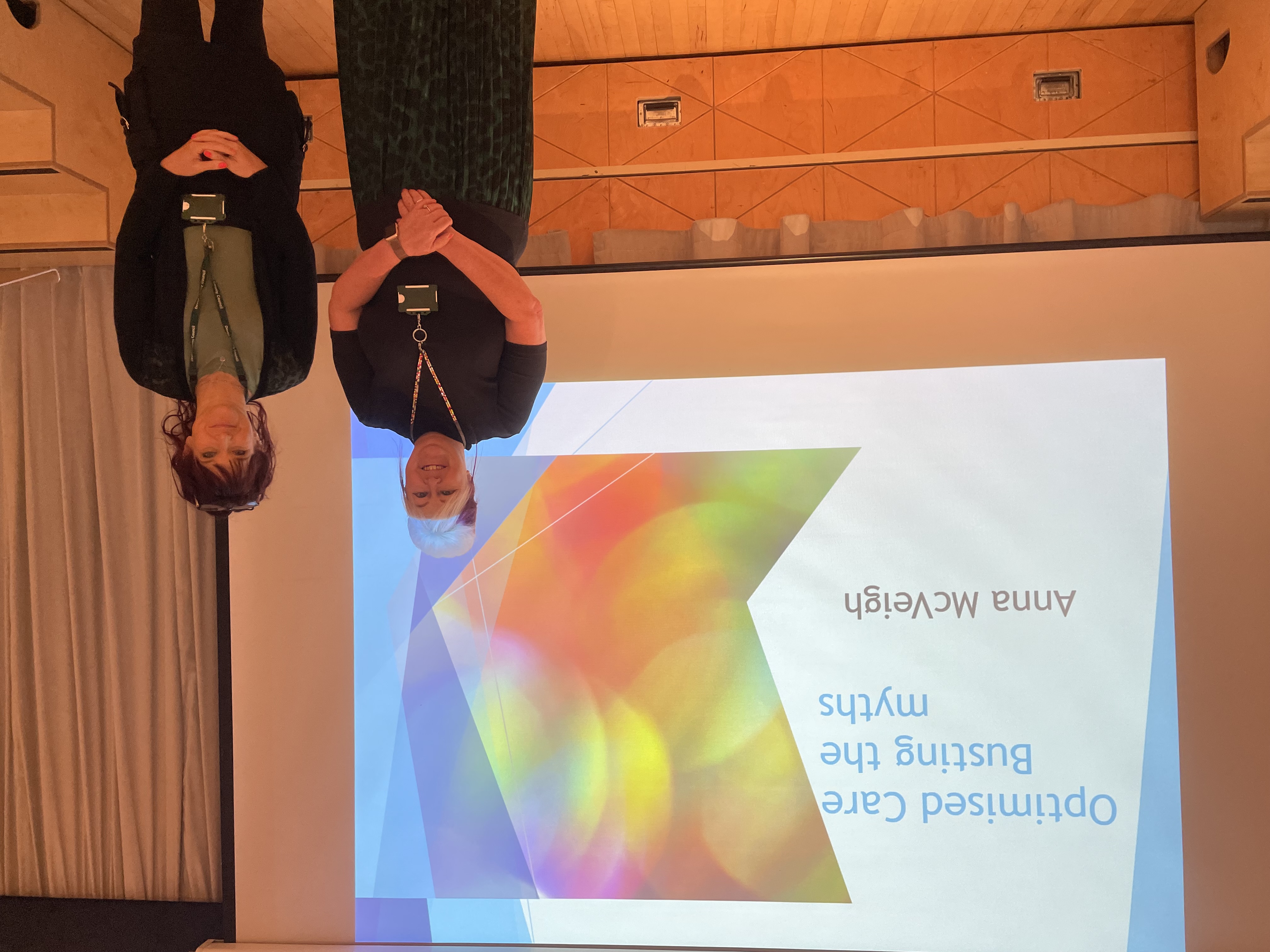 Anna McVeigh contributed to the conversation by debunking common myths associated with moving and handling patients. One prevalent myth—that it always takes two carers to hoist a patient— was challenged by her data-backed findings. McVeigh demonstrated that under appropriate circumstances with the right risk assessment and equipment, hoisting with one carer can be safe, legal, and more efficient.
Anna McVeigh contributed to the conversation by debunking common myths associated with moving and handling patients. One prevalent myth—that it always takes two carers to hoist a patient— was challenged by her data-backed findings. McVeigh demonstrated that under appropriate circumstances with the right risk assessment and equipment, hoisting with one carer can be safe, legal, and more efficient.
Deborah Harrison gave a presentation and an insight into work being carried out in a care home setting, presenting the evidence of what does work in a nursing home setting. Highlighting the work with Nightingale Hammerson residents and therapy team. A discussion about the work being carried out with a larger stakeholder group in collaboration with Rospa was also presented.
Deborah also discussed the launch of the Care England report which can be found here.
Throughout the event, presenters shared compelling evidence of the wide-ranging benefits of SHC. These include:
- Enhanced Patient Dignity and Independence: Patients reported feeling more in control of their care, leading to better emotional well-being and a sense of dignity.
- Reduction in Care Costs: By reducing the number of carers required per patient, this leads to significant savings, which can then be reinvested into services.
- Improved Workforce Utilisation: Optimal handed care frees up valuable resources, enabling carers to spend more quality time with other patients or perform tasks more efficiently.
- Sustainability: By reducing hospital readmissions and the length of hospital stays, optimal handed care contributes to more sustainable healthcare practices.
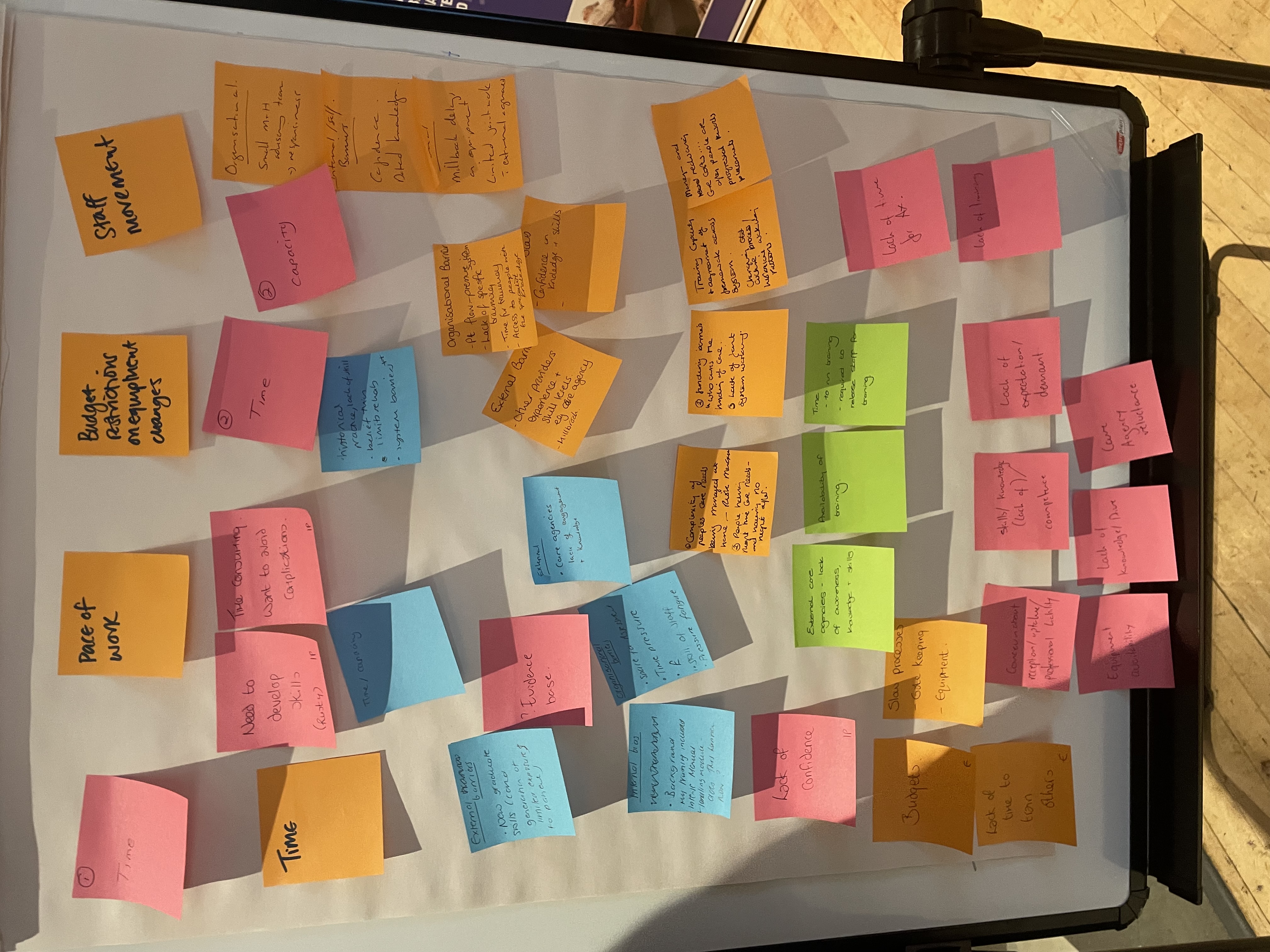
The event concluded with a discussion on how to further implement optimal handed care across the Southwest. Participants called for ongoing investments in staff training, equipment, and data-driven approaches to care. The consensus was that while barriers exist, the benefits of SHC far outweigh the challenges, and with the right support, it can become the norm in many more settings.
In summary, the Southwest Optimal Care Conference demonstrated that single-handed care is not just a vision but a reality that can significantly improve patient outcomes and efficiency in care delivery. A1 Risk Solutions, alongside our valued sponsors and partners, is proud to support the continued growth and implementation of optimal handed care in the region.
We look forward to building on these insights and driving forward the next phase of optimal care delivery. Thank you to everyone who participated and contributed to this transformative event.



